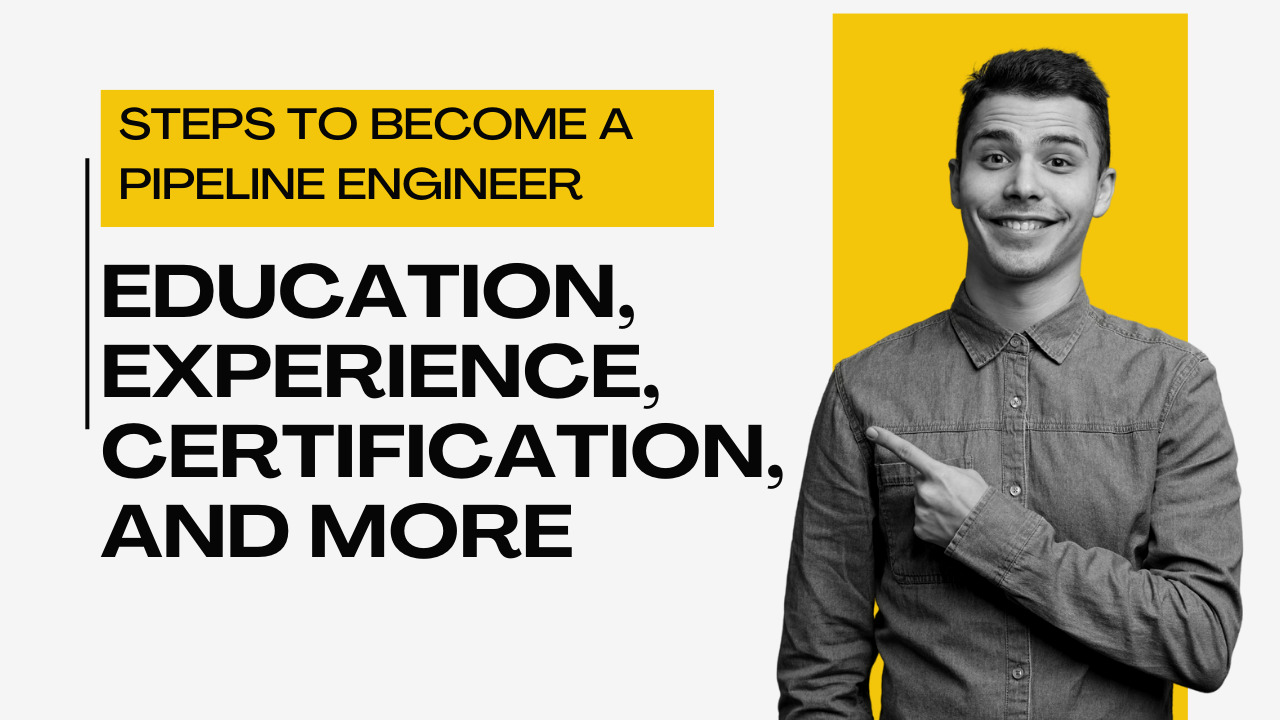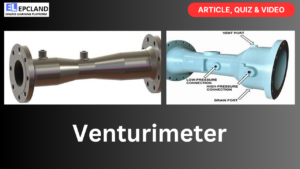Introduction
Pipeline engineers play a crucial role in designing, constructing, and maintaining the intricate network of pipelines that transport vital resources like oil, gas, and water. Becoming a pipeline engineer requires a combination of education, hands-on experience, and industry-specific certifications. In this comprehensive guide, we’ll walk you through the step-by-step process of becoming a successful pipeline engineer.
Table of Contents
Don’t miss the Complete Course on Piping Engineering: Check Now
By EPCLand.com
The Path to Becoming a Pipeline Engineer
1. Education: Laying the Foundation
A strong educational background is the starting point for any aspiring pipeline engineer. Most pipeline engineers hold at least a bachelor’s degree in civil, mechanical, or petroleum engineering. The coursework covers subjects such as fluid mechanics, structural analysis, geotechnical engineering, and pipeline design.
Choosing the Right Engineering Degree
Selecting the appropriate engineering degree is critical. Mechanical engineering programs offer a broader focus, while civil engineering programs often delve deeper into structural aspects. Petroleum engineering programs are tailored to those interested in the oil and gas sector, focusing on reservoir engineering and drilling techniques.
2. Gaining Hands-On Experience
While education provides the theoretical foundation, practical experience is equally important. Internships and co-op programs with engineering firms or pipeline companies provide hands-on exposure to real-world projects and challenges.
Internships and Co-op Programs
Participating in internships or co-op programs during your academic years can offer valuable insights into the pipeline industry. These opportunities allow you to apply classroom knowledge in a practical setting, develop industry connections, and enhance your resume.
3. Specializing in Pipeline Engineering
Pipeline engineering is a specialized field that requires a deep understanding of pipeline design, integrity management, and construction. Pursuing additional courses or certifications in pipeline engineering can set you apart from other engineering graduates.
Pipeline Engineering Courses
Look for courses or workshops that focus specifically on pipeline engineering. Topics may include pipeline materials, corrosion prevention, hydraulics, and pipeline regulations. Online platforms and industry associations often offer these courses.
4. Certification: Showcasing Expertise
Certifications validate your expertise and commitment to the pipeline engineering field. While not always mandatory, they can significantly enhance your career prospects.
Relevant Certifications
Consider pursuing certifications like the Professional Engineer (PE) license, which requires passing an exam and meeting experience requirements. Additionally, certifications such as the Certified Pipeline Professional (CPP) designation offered by pipeline industry associations can boost your credibility.
5. Entering the Workforce: Job Opportunities
With the right education, experience, and certifications, you’ll be well-equipped to enter the pipeline engineering workforce. Job opportunities exist in various sectors, including oil and gas, utilities, and infrastructure development.
Job Roles in Pipeline Engineering
Pipeline engineers can work as design engineers, project managers, integrity specialists, and more. Roles vary depending on the sector and company size. Oil and gas companies often hire pipeline engineers for exploration, drilling, and transportation projects.
FAQs (Frequently Asked Questions)
Q1: What degree do I need to become a pipeline engineer?
A bachelor’s degree in civil, mechanical, or petroleum engineering is typically required. Specialized pipeline engineering courses can also enhance your qualifications.
Q2: Are certifications necessary to become a pipeline engineer?
While not mandatory, certifications like the Professional Engineer (PE) license and Certified Pipeline Professional (CPP) designation can demonstrate your expertise and improve job prospects.
Q3: How can I gain hands-on experience in pipeline engineering?
Participate in internships or co-op programs during your academic years. These opportunities provide practical exposure to pipeline projects and industry practices.
Q4: What sectors hire pipeline engineers?
Pipeline engineers are in demand across sectors such as oil and gas, utilities, infrastructure, and transportation. They play vital roles in designing, constructing, and maintaining pipelines.
Q5: What roles can I pursue as a pipeline engineer?
Pipeline engineers can work as design engineers, project managers, integrity specialists, and more. The specific role may vary based on the industry and company.
Conclusion: Your Path to Pipeline Engineering
Becoming a pipeline engineer requires dedication, a solid educational foundation, practical experience, and ongoing learning. By pursuing the right degree, gaining hands-on experience, specializing in pipeline engineering, obtaining relevant certifications, and exploring diverse job opportunities, you can pave the way for a successful career in this dynamic field. The pipeline industry plays a critical role in global infrastructure, and as a pipeline engineer, you can contribute to its growth and sustainability.
Remember, the path to becoming a pipeline engineer is a journey of continuous learning and growth. Stay curious, stay informed, and be prepared to adapt to the ever-evolving demands of the industry.
Recommended courses (Published on EPCLand)
- Basics of Piping Engineering
- Piping Layout Engineering
- Piping Material Engineering
- Piping Stress Analysis
- Complete Course on Piping Engineering
- Material Requisitions
- Piping Material Specifications
- Valve Material Specifications
Don’t miss the published articles on following:
Related Video
Attempt Quiz
Question 1:
What is the typical educational requirement to become a pipeline engineer?
Explanation: A typical educational requirement to become a pipeline engineer is a Bachelor’s degree in engineering, with a focus on civil, mechanical, or petroleum engineering.
Question 2:
What type of experience is beneficial for a pipeline engineer?
Explanation: Internship or co-op experience in the energy industry, particularly related to pipeline projects, can be beneficial for a pipeline engineer to gain practical knowledge and skills.
Question 3:
What skills are important for a pipeline engineer?
Explanation: Strong communication and teamwork skills are important for a pipeline engineer, as they often work in multidisciplinary teams and need to effectively communicate with colleagues, contractors, and stakeholders.
Question 4:
What professional certifications can enhance a pipeline engineer’s career?
Explanation: A Professional Engineer (PE) license is a valuable certification for a pipeline engineer. It demonstrates a high level of expertise and can lead to increased job opportunities and responsibilities.
Question 5:
What is an important step for networking and staying updated in the pipeline engineering field?
Explanation: Attending industry conferences and seminars is an important step for networking with professionals in the pipeline engineering field and staying updated on the latest advancements and trends.



